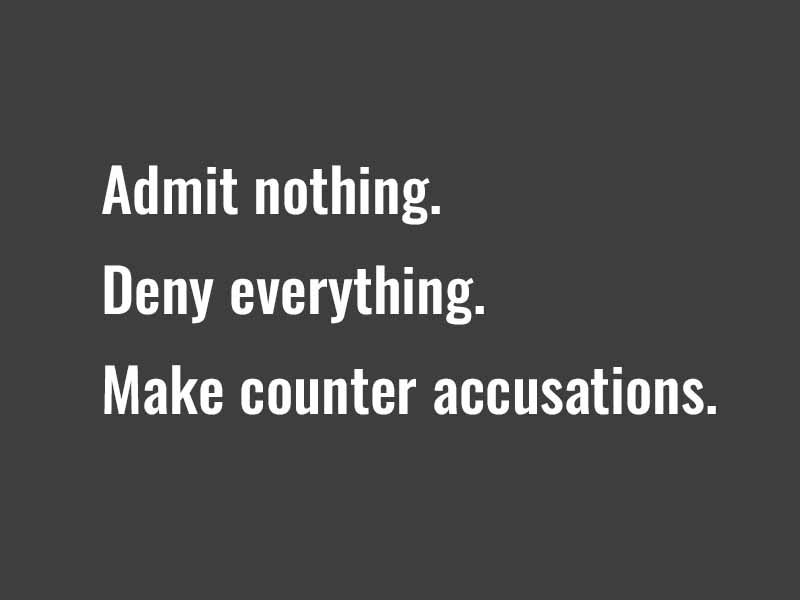
Why You Can’t Spy a Lie and What to Do About It
Many years ago, my husband and I bought a single-engine Piper 180 airplane. He’d go out to the small airport 30 minutes from our house, expand his piloting skills and get a break from his high-pressure job as an intelligence officer.
Yes, it’s fairly expensive to own a small aircraft. Av-gas, maintenance, rental spot at the airport, etc. We decided to sell a half share in the plane to a friend who was also a private pilot. His check cleared and everybody was happy.
When work took us overseas, our friend bought our share of the plane, making him the sole owner.
About a year later, we were saddened to find out that the friend had crash-landed the plane. He was fine but the plane was a goner.
Fast forward 20 years
Now retired, my husband decided to buy another airplane and started looking at aviation websites.
He discovered a site where he could plug in the FAA tail number of an aircraft and see its history. On a whim he plugged in the Piper’s tail number.
Lo and behold, our sweet Piper 180 was alive and well, still wearing the same lovely coat of green and white paint. It had passed through several owners since our friend sold it and currently resides in the Midwest.
It never crashed. Our friend lied.
We’ll probably never know why.
Why can’t we spy a lie?
One of the reasons our friend got away with lying about the Piper was, in addition to being so far from the location of the alledged crash, we had no reason to suspect him of deceit.
All our previous interactions had been honest. We didn’t investigate any further.
But what if there had been a clue? Even a germ of suspicion?
Here are a few reasons why it’s so hard to answer those questions.
We don’t want to know
People do not believe lies because they have to, but because they want to. – Malcolm Muggeridge
Often, we don’t recognize a lie because it’s what we already want to be true. Deciding that the information is a lie means shedding existing beliefs, desires, bias or aspiration.
And nothing is harder than letting go of what you want to be true, especially if it aligns with a personal identity.
Basically, you can be swayed by what you want to believe rather than by objective assessment.
Nobody wants to believe as spouse is cheating, so the hotel receipt in the jacket pocket is rationalized as a business expense.
Nobody wants to believe their teen is running with a bad crowd, so the kid’s erratic and anti-social behavior is ignored.
Nobody wants to believe that a favorite politician is involved in scandal so the messenger is blamed.
In The Way of Integrity, Martha Beck writes “If we’re committed to integrity, we have to act like detectives on a case, testing every bit of evidence, seeing if it makes sense . . . In other words, we have to deliberately search for reasons that whatever we believe might not be accurate.”
Can you spy a lie even when it reinforces your own beliefs?
Yes, especially if there is a whiff of doubt. Find other sources of information on the same topic, examine the full story, and keep an open mind.
The niceness factor
Most of us are nice people who think other people are nice, too. You might think it’s paranoid to suspect someone of behaving deceitfully. You don’t want to be accused of being a conspiracy theorist or wind up in an argument.
So you ignore the deceit, effectively swallowing the lie.
That’s how liars exploit our tendency to be nice.
According to a 2021 university study in Sweden, nice people “risk being exploited in social situations,” because they can be perceived as “the proverbial doormat rather than as someone you’d be afraid to offend.”
A determined liar will exploit your instinct to be accommodating or avoid conflict. Liars may exploit our natural inclination to trust others, especially given how essential and universal trust is to healthy relationships.
They may use your reluctance to question or challenge their statements, knowing that you’d rather maintain peace and avoid hurt feelings—yours or theirs.
Can you spy a lie and still be nice?
Be pleasant but with a healthy dose of suspicion. Start from the premise that you don’t want to be taken advantage of. Trust, but verify, as they say in intelligence circles.
The repetition factor
The more you hear something, the more apt you are to believe it.
“Repetition is the mother of belief. What we repeat to ourselves, and what we hear repeated, sinks into our minds and becomes our reality.” – Tony Robbins
In Spy the Lie, a fascinating study by 3 former CIA officers, the authors use the term “referral statements” to define the repetition of a claim someone is making. “Each subsequent time the claim is made, it diminishes our resistance or disbelief, to the point where the door is opened to the possibility that the claim actually has credibility.”
Basically, the more something is repeated, the more believable it becomes.
Think of the barrage of political ads before an election, harping on negative traits of candidates. Many outlandish ads are repeated over and over, hoping that sheer repetition will convince us that each candidate is a combination of Atilla the Hun and Ivan the Terrible.
If those ads didn’t work, they wouldn’t be so prevalent.
Can you spy a lie when you hear it again and again touted as truth?
Yes, because you should recognize repetition as a pattern with an agenda. Ask yourself why this is being repeated over and over. Go beyond the obvious reasons. Maybe they are correct, but maybe not.
If nothing else, repetition is a cue to investigate.
Final thoughts
Liars can exploit our reluctance to accept something that calls our own beliefs into question, a natural inclination to be nice, and a natural tendency to believe what we hear over and over.
But knowing all this gives you a clear advantage over the liar—if you choose to act on it.
If there’s any doubt, dig for more information, balance niceness with healthy suspicion, and recognize repetition as a pattern that may be pushing a deceptive agenda.
Let’s not crash any more Pipers.



